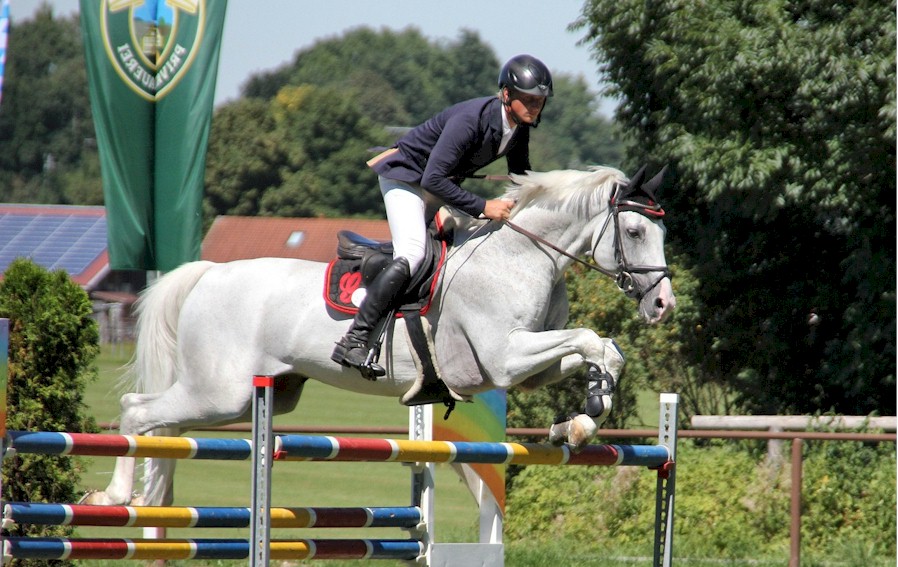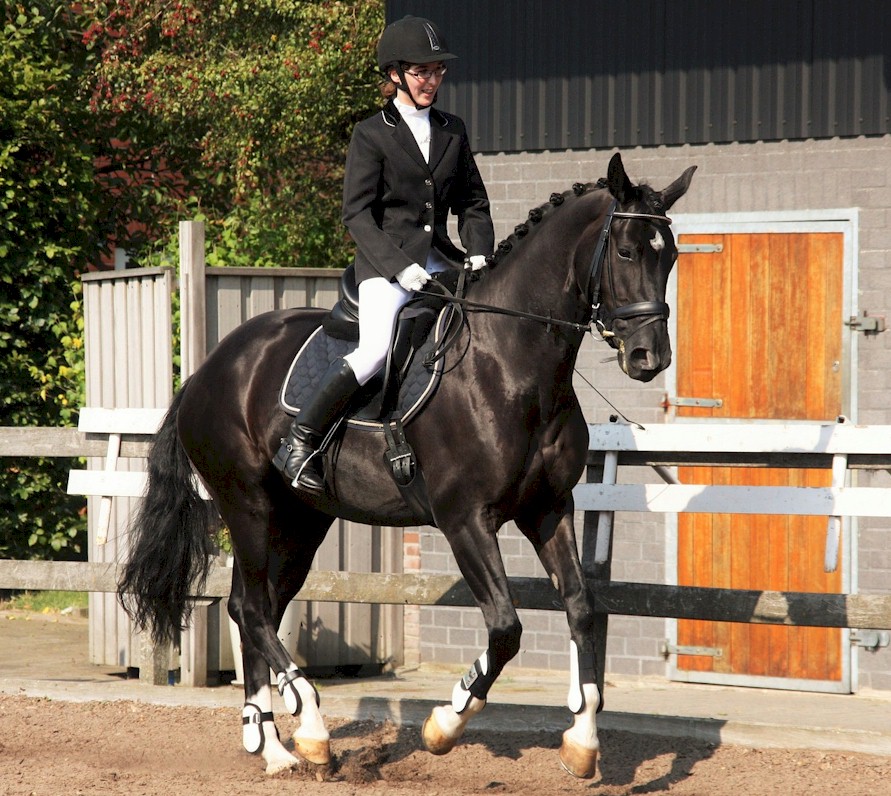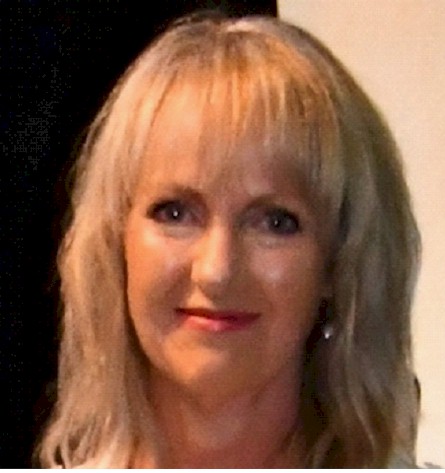Sports Performance in Competition: Managing Anxiety Like a Professional
(8 min read)
In any sport, success depends on the sports person's skill, mental discipline, focus and physical fitness. Equestrian sports introduce a unique element of communication and partnership with an animal. Success depends not only on the rider's skill but also on their ability to understand and work harmoniously with their horse.

Pre-competition anxiety
Why is it that we can ride confidently at home in our training arena, producing some of our very best work, yet when we go to a horse-riding competition it all falls apart or doesn't go quite as we expected?
What is success?
Is success winning? Well yes, it probably is to many of us. A standard definition of success is based on achieving your personal best, i.e. knowing that on the day, you rode to the very best of your ability and gave it your very best shot, that feeling where you were in complete harmony with your horse. It all just flowed, and it was easy.
Horse-riding is unique: In the horse we have another being, another mind, which makes the sport all the more challenging as we work on developing a partnership together, a bond.
Horses are prey animals with a long evolutionary history as herd animals. They will very naturally flee in order to avoid danger. So, imagine what the horse thinks when we ride happily and confidently at home, but when we're out at a competition suddenly we, the rider, become tense and anxious. If we have doubts, the horse picks up on our energy and he will have doubts. He senses danger, senses that his rider—his leader—is not in control, and so prepares himself for the worst and often his resulting behaviour is far from what we expected!
If a horse can feel a fly on his coat, he'll very certainly feel the tension we have in our legs, seat and through our hands, not to mention picking up on our emotional state!
There are five main attributes that we, as riders, need for success:
- Physical fitness
- Coaching, training, development of skills
- Concentration
- Confidence
- Relaxation.
Of these five attributes, you'll see that the last three—concentration, confidence and relaxation (that's 60 percent)—are emotionally based. We spend so much time, energy and money on the physical aspects of training, yet these emotional components are critical to success. It's these three that lead us either towards or away from what we really want to achieve. Let's take a closer look.
- Concentration: If our mind is wandering when we're riding it isn't fair to expect the horse to be focused and listening to us.
- Confidence: We need to have confidence in our own ability as well as our horse's ability. If we have had some previous bad experiences, then our confidence can be lacking.
- Relaxation: If I were to choose the single most important quality for achieving success, I would have to say this is it! Perhaps the concept of being relaxed in a competition setting is quite unusual. Don't we want to be up and on high alert?
Operating from a relaxed state, free from unnecessary or residual tension, enables us to be in the present moment. Being 'in the zone', or flow state, is a psychological state characterised by complete absorption in an activity, intense focus, and optimal performance. When individuals are in a flow state, they often lose track of time, have a sense of effortless action, and experience a deep sense of enjoyment and satisfaction, e.g. when you're absorbed in a great book or movie.
When we're not relaxed or present, a dressage test or show jumping round will be over in a flash because we're clouded with tension and stress. We are in a fight/flight or stress state where our emotions have taken over. We feel a distinct lack control and can only make either-or decisions as stress act to protect us by shuting down our rational, decision-making brain. Stress is a drain on the body and also the mind. How do we stop getting caught up in stress?

Do you ever give your mind time to rest? Where is all this 'thinking' taking you? Do the same thoughts or to-dos go around and around, over and over and over? Does your mind ever stop? What if my horse shies? What will people think of me? I'm not ever going to be able to… (you fill in the blank!).
The key to sports or performance success is to train our minds to the same level as we train our bodies for skills and fitness. The aim is to ensure that we can clearly identify stress when it starts to build up, and therefore implement tools to keep negative thoughts, stress, and residual tension at bay.
Less really is more: Let go, and allow yourself to ride! Be in the flow state, and avoid negative, internal mind chatter.
Being more relaxed and easing stress from our bodies helps to build the mental aptitude to be able to identify early whatever it is that can hamper our progress. This mental discipline and focus allows us to stay in the flow state where we take a proactive approach, avoiding the flight/fight reactive mode of stress and tension. This enables us to remain in control so that we can more readily create and achieve what we really desire. Training our minds in this more productive way enables us to identify and negate weaknesses and causes of negativity whilst remaining focused on strength and positivity, thus empowering ourselves.
Competition day
Imagine Competition Day has dawned. This could be an equestrian event as described here or another sports event, or even an important presentation or public speaking event. What is going to help or hinder you today?
Imagine how you are feeling. Confident and relaxed, or anxious, nervous, snapping at your partner, friends or others who are there to help and support you? Maybe your appetite has gone, or worse! Perhaps you have lingering doubts and haven't slept for a week running through all the 'what ifs... '.
Your conscious mind may be in a winner's mindset but if your subconscious mind is telling a different story, such as, 'I ride for fun, right? It's my time out, my hobby. Why am I putting myself through this? Remember last competition when I completely botched it?' then self-sabotage will most likely come into play. In any event or performance, your story needs to be congruent in both your conscious and subconscious minds. Visualisation or self-hypnosis is a powerful tool used extensively by elite performers to ensure success.
Competing is a time when all your training comes together, and you demonstrate what you have achieved as a marker of your progress. In equestrian events, this involves being cleaned, dressed, plaited, warmed up, in the right place, at the right time, with you and your horse giving your best. Phew! No pressure! Plus, you've got two, three or more tests or rounds to ride. How are you going to remember everything at the right time and not get them muddled?
Can you see what's happening to your thoughts? Pressure, tensions and expectations are building. Unlike when we practise and train in our own time, there is so much more going on at a competition. In training, we work to our own schedule, but now it's a different story! It has to go well.
Stop. Breathe. Take a moment to focus, to mentally prepare yourself. Check in with yourself and bring things back into perspective. If you are uptight and frazzled, then your horse is going to wonder what is going on with you. He's going to get worried and he (and you) won't be able to concentrate on what you're doing. Give yourself plenty of time.
Switching the vagus nerve 'on' puts you in rest/digest mode and turns off the stress or fight/flight response. Try this simple grounding exercise just before you get on:
- Shake out the tension in your shoulders. Roll them up and down a few times.
- Look straight ahead and take a deep breath. Hold that breath.
- Now—keeping your eyes open—turn your head as far as possible to the left.
- Then—still keeping your eyes open—turn your head as far as possible to the right.
- Keep your head straight, move your eyes to the right and hold, then move your eyes to the left and hold.
- Turn to look straight ahead and exhale.
Imagine your competition warmup, making sure you remember to breathe, which may be easier said than done. Watch those thoughts, and keep them present and on the job. This is not the time to think about any doubts or 'if onlys'. Focus only on the moment, on your riding, now. Go into that feeling of flow, concentrating on getting your horse going. Is he working correctly, engaged, moving off your leg? Do the warmup routine you perfected in practice and use it. Get the rhythm, the pace, the suppleness. Your mind is narrowed down and so focused. You are in the present moment, achieving the flow state that you have mastered in practice before competition day.
You are becoming more present, in the here and now, communicating more effectively with your horse. There's a pattern developing, and the positives are building on more positives, creating an upward energy swing and intense focus. You are working together, in harmony, just you and your horse. Distractions such as the audience, the judges or your competitors who may even be trying to psych you out, have faded into the background. You're in the flow state with your horse and you are enjoying the moment.
When you're riding in this way—in the present, the now—you are better able to make good decisions instantly and instinctively if something unexpected happens. This is called controlling the controllables.
Lacking mental discipline scatters your thinking, damages your focus, and makes it easier for negative thoughts to surface. Distractions will take centre stage if you let them, chipping away at your confidence and concentration. That desire to be truly on top of your game is rattled.
When you're in the present moment flow state and you make a mistake, you are able to recover rapidly. For example, If you forgot to trot at C, and keep going around the arena until E, you won't get rattled. You'll be focused on what's next, not trying to undo the past. Post-event is the time for the lesson and awareness for next time. If you allow this error to break your flow state and to rattle you, it will quite possibly ruin the rest of your performance.
So, did you win? Winning is not necessarily getting placed first. It is performing up to 100 percent of your ability on the day. You know you have given your all, your absolute personal best, and that's what counts. There will be times where you are well-beaten by someone who is simply better than you on the day, but as long as you can say that you gave it your best shot, that's all you can ask for.
A winner is one who is mentally and physically prepared. One who understands the power of their subconscious mind and ensures their conscious and subconscious minds are in harmony. A winner is someone who moves into a flow state, easily and effortlessly.
Put simply, success is first and foremost a choice. Prepare to the best of your ability and you will perform to the best of your ability. Work with your body, mind and spirit—the whole of you—and you will be a winner.
Reference
Arnsten A, Mazure CM, Sinha R. This is your brain in meltdown. Sci Am. 2012 Apr;306(4):48-53. doi: 10.1038/scientificamerican0412-48. PMID: 22486116; PMCID: PMC4774859.
Recommended Reading
Waitley, Denis. New Dynamics of Winning. Harper Perennial, 1995.
Andy Shaw. Creating a Bug Free Mind. www.AndyShaw.com, 2010.
Lindsay Cook Dip.Clin.Hyp; PMASCH is an accomplished Clinical Hypnotherapist with more than 30 years’ experience, specialising in Equestrian Sports Performance for horse riders. Based in Auckland, New Zealand, Lindsay travels frequently to Australia and designs individually personalised programmes to bring out the best in everyone. Visit her website at https://lindsaycook.net/.
Leave a Comment? Click here.
Articles in Issue 1
- A Blueprint for Success: Planning and Maintaining New Year's Eve Resolutions
- Discovering past lives, Part 1
- Discovering past lives, Part 2
- Sports performance in competition: Managing anxiety like a professional
- Healing hearts and minds: A glimpse into the inspiring work of volunteer, Sandy Beech
- The cry of the wounded inner child
- How addictive is vaping?
